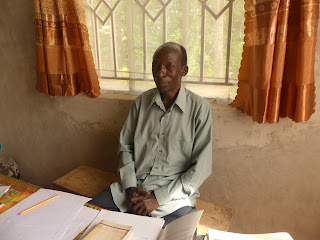My two-year-old ordered from me yesterday to take a boda (moto-taxi) and go to Kakamega for ice cream. I guess it has not hit him yet that we are back and no bodas or matatus here. Despite the abundance of ice cream and toys, I guess both of my kids miss the sunshine and carefree days in the lush green garden with free-roaming chickens and kids of Shianda. I definitely miss the morning boda rides to the work to see how the village wakes up and friendly faces greeting you. Every day was an adventure and you never knew how it might turn up. Will there be electricity to run all the planned activities, what crazy stories or situations you or other volunteers will up or what plans will be made for the weekend. My brain really felt awake and stimulated!
People in Kenya live truly in the moment and when immersed in the local setting one also learns to seize the present. Not to worry too much about the future or past, just to savour the present. There is a phrase in Swahili Hakuna Matata (no trouble) that really well describes the stress-free atmosphere and learning-to-let go vibe. I am still a learner in that School, but with every experience growing more and more. Another aspect of daily life is hassle culture, to seize an opportunity and to act on it. I mean I see the benefits of it, but I guess I need to take a year to really practice it and see if it is energy efficient for me. As the majority of people there are religious they love treating everything that comes their way as a sign. I experienced it mostly with boda drivers, who took my presence (or you know any other muzungu) as a sign or token of good luck. Would be amazing to start reading the signs myself. I feel that I rely a lot on my intuition when making decisions, but not welcoming all the things and people as signs of something in my life.
It all sounds amazing, but do not get me wrong there were also many challenges such as a different concept of time. For a typical westerner, time is money and you want to be sharp, but on the contrary, here time is for spending and enjoying and there is no rush. As they love to say pole pole (slow) in Swahili. I already had one experience with the workshops in Ghana and I knew that things take time and if you make an agreement no need to expect that everyone (or anyone) will be there on time. For me, a bigger challenge was that people do not like confrontations so a lot of things are just left hanging. Similarly, they rarely give criticism or negative feedback. One really needs to have a good cultural understanding to read them during the workshop and understand if the activity and content are suitable and engaging. I personally am quite a straightforward person who loves a good critique and can sometimes sound too bossy so I had to take many levels down in Kenya.
Despite all the hassle, bucket showers, garbage-burning smell, electricity cuts, chocolate-less village shops (I am addicted to chocolate) life in Kenya was amazing and I would go back anytime when a new opportunity arises. Mondo is doing such a great job and the community in Shianda is beautiful. Other volunteers became our second family and it was a magical time. At the moment I am excited to continue with my PhD research at Tallinn University and help with educational projects, but let`s see what the future brings. I have a feeling that Africa shall see me again soon! Until then I am happy to share my experience with anyone interested to hear about volunteering or life in Shianda.
Thank you, Mondo and the Estonian Ministry of Foreign affairs for such a wonderful opportunity and all the work you do with the communities!
 |
| Visiting the member of parliament Benjamin Jomo Washiali |
 |
| PAPO digital trainers |
 |
| Our Shianda family |







































